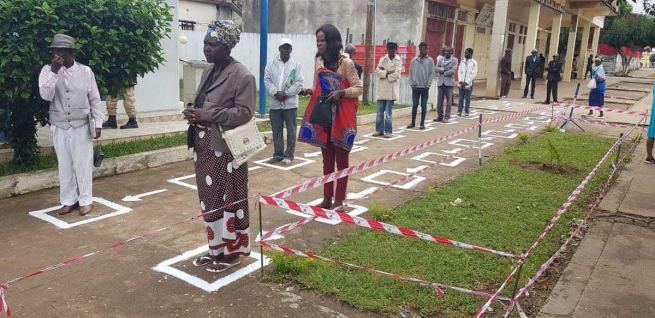In Angola, the national state of emergency, with mandatory quarantine, was decreed on 24 March; to date, about 27 positive cases have been reported as Covid-19, all of people returning from abroad and intercepted at the airport.
“At this moment,” Sergio says, “there are 2 major concerns: the structural deficiencies of the national health system; and, in the longer term, the devastating effects that the new instability is creating among the population, especially among the poorest and most vulnerable groups.”
Among the groups most at risk and most exposed are the numerous street children in Luanda who are supported and helped by VIS and the Salesians.
Sergio continues: “For several years now, together, we've been carrying out a reintegration program where children and adolescents whose home is the street are reintegrated into the family through several phases. The first phase of the program takes place on the streets with our educators and psychologists and is aimed at those who are starting along this path. These kids, in these days of social deconstruction, are more than ever exposed to the risks of the street, to diseases, to the possible contagion of Covid-19, to the lack of sources of subsistence and to the violence of adults and often, unfortunately, also of law enforcement.”
Some activities of the "Vamos Juntos" project supported by the European Union and other benefactors have thus been redirected; they've opened a new emergency center where the street children can be offered to live this period in a community and in an organized way, far from the dangers of the ever more present streetlife.
“Many of them responded positively,” he says. “About 50 children and adolescents, of which 9 are girls and... 1 baby girl... from the street... were welcomed, the former in the 'Refugio House' of the Salesian Center 'São Domingos Savio', the latter in the Maria Mazzarello house of the Daughters of Mary Help of Christians.”
In these two centers, boys and girls receive protection, nutrition, hygiene products and, above all, the attention of many social educators and volunteers who dedicate themselves to them, helping the children to organize their daily lives, to learn and to respect the rules of hygiene and prevention, and to make them responsible.
Sergio concludes: “We're trying to ensure that this emergency can be transformed into an opportunity to carry out more accurate work of accompaniment and empowerment for children and adolescents in street situations, and looking to the future, preparing the way for their returning within their families.”
Source: VIS


